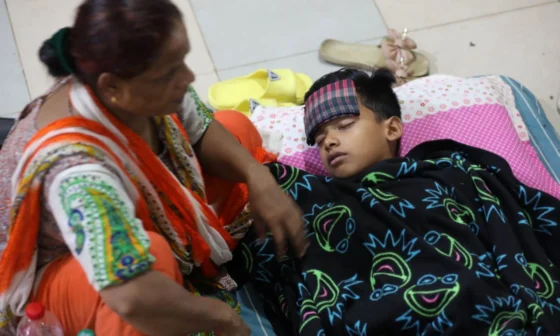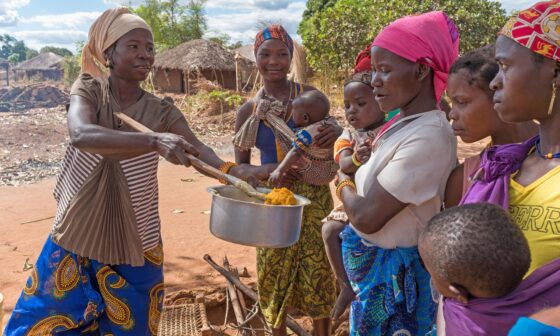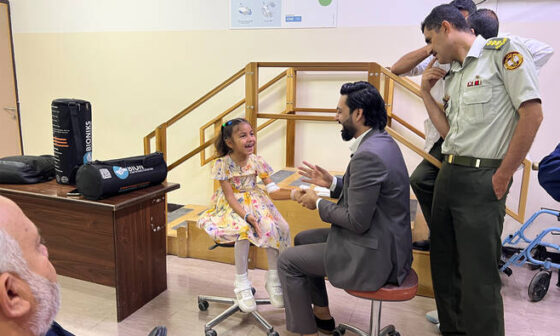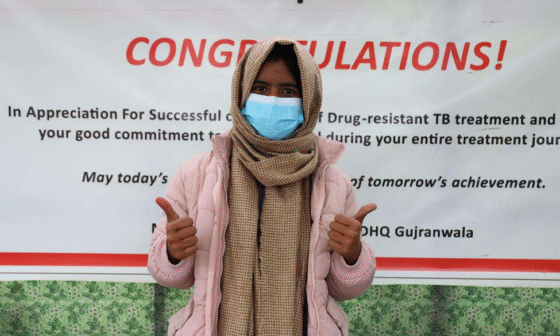Maternal health is a critical aspect of public health in Pakistan, yet it remains one of the most neglected areas, particularly in rural regions. Thousands of women continue to lose their lives every year due to preventable complications during pregnancy and childbirth. According to the Pakistan Maternal Mortality Survey, the maternal mortality ratio stands at approximately 186 deaths per 100,000 live births, with the highest rates recorded in rural provinces such as Sindh, Balochistan, and Khyber Pakhtunkhwa. Poverty, lack of healthcare facilities, cultural barriers, and limited awareness of safe motherhood practices are major factors contributing to these preventable deaths. Many expectant mothers do not have access to antenatal care or trained birth attendants, forcing them to rely on traditional midwives or give birth at home in unsafe conditions. Improving maternal health is not only a moral and humanitarian obligation but also a key step toward ensuring healthier families and stronger communities.

Mother and child health — MORU Tropical Health Network
A telling example comes from a small village in interior Sindh, where 22-year-old Shabana faced severe complications during her second pregnancy. Her husband, a daily wage laborer, could not afford to take her to the nearest health center, which was over 50 kilometers away. When labor pains began, the village’s traditional birth attendant tried to assist her, but due to prolonged labor, Shabana suffered heavy bleeding and lost consciousness. By the time a relative managed to arrange transport to the hospital, it was too late—Shabana lost her life, leaving behind a grieving husband and a newborn who would now grow up without a mother. This tragic story reflects the harsh reality faced by many rural women who lack timely access to skilled care. Behind every maternal death is a chain of poverty, poor infrastructure, and cultural norms that restrict women’s mobility and decision-making power.

Addressing ‘Obstetric Violence’ in Africa | Human Rights
Several interconnected factors contribute to the maternal health crisis in rural Pakistan. First, inadequate healthcare infrastructure in remote areas limits access to antenatal and postnatal services. Most rural health centers are understaffed, poorly equipped, and lack essential medicines. Second, cultural beliefs often prevent women from seeking professional care, as they may need permission from male family members or face social stigma for visiting hospitals. Third, malnutrition and anemia among women of reproductive age increase the risk of complications such as hemorrhage and infections during childbirth. Fourth, untrained traditional birth attendants are often the only available option, and their lack of knowledge about emergency obstetric care can lead to avoidable deaths. In addition, poor road networks and transportation difficulties make it nearly impossible for pregnant women to reach tertiary care centers during emergencies. The intersection of these issues creates a deadly cycle of preventable maternal mortality.

Pakistan – International Dalit Solidarity Network
The impact of poor maternal health extends beyond the mother, affecting the entire family and community. When a mother dies during childbirth, her newborn faces a much higher risk of dying within the first year of life. Surviving children often experience malnutrition, lack of emotional care, and reduced educational opportunities, perpetuating intergenerational poverty. Moreover, families often incur catastrophic expenses when complications arise, pushing them further into financial hardship. On a national scale, maternal deaths reduce women’s participation in the workforce, affecting economic growth and development. In contrast, investing in maternal health not only saves lives but also improves child survival rates, enhances women’s empowerment, and contributes to the overall well-being of society. Therefore, addressing maternal health is both a public health priority and a critical component of sustainable development in Pakistan.

Group Antenatal Care | The Challenge Initiative
Community-driven solutions have shown promising results in improving maternal health outcomes in rural areas. Training and deploying skilled birth attendants within villages ensures that women have access to safe delivery services closer to home. Expanding antenatal care programs that provide regular checkups, iron and folic acid supplements, and health education can prevent complications before they become life-threatening. Mobile health clinics and telemedicine services can bridge the gap in remote areas by connecting expectant mothers with qualified doctors. Culturally sensitive awareness campaigns that involve community elders and religious leaders can help shift traditional beliefs and encourage families to prioritize safe motherhood practices. Furthermore, strengthening emergency referral systems, such as community-run ambulance services, ensures timely transport to hospitals during complications. Public-private partnerships and NGO initiatives can complement government efforts by providing resources and training to underserved communities.

Foundation AI Expert Offers a Look into AI RFP Recipients
Shabana’s story could have ended differently if she had access to proper maternal care and a skilled health worker in her village. Many rural women who once faced similar risks have survived because of community health programs that emphasize safe motherhood practices. To truly eliminate preventable maternal deaths, Pakistan must prioritize rural healthcare infrastructure, invest in training more midwives and doctors, and ensure that every pregnant woman has the right to safe and respectful care. Safe motherhood is not just a health goal but a human right that can transform families and communities. By addressing these challenges collectively, Pakistan can build a future where no woman dies while giving life, and every child has the chance to grow up with the love and care of a healthy mother.
References
Rural Support Program Network Report (2023). “Mobile Health Clinics and Emergency Transport for Pregnant Women.”
Pakistan Maternal Mortality Survey (2023). “Maternal Health Indicators in Rural and Urban Areas.”
World Health Organization (2023). “Safe Motherhood and Strategies to Reduce Maternal Mortality.”
UNFPA Pakistan (2023). “Improving Reproductive Health Services in Rural Communities.”
Aga Khan University Research (2022). “Barriers to Antenatal Care Access in Remote Pakistan.”
Save the Children Pakistan (2023). “Community Midwives and Their Impact on Maternal Survival.”
The Lancet Global Health (2022). “Maternal Anemia and Pregnancy Complications in South Asia.”
Journal of Public Health (2023). “Cultural Norms and Decision-Making in Maternal Health.”






